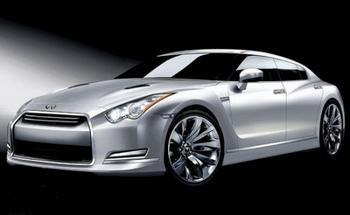Tire Valve, Tire Air Valve, Car Tire Valve Ningbo Xiangsheng Auto Parts Co., Ltd. , http://www.partsaa.com Due to disputes between China and Japan over the sovereignty of the Diaoyu Islands, Japanese car makers are facing tremendous pressure in China. Nissan said it will carefully consider the investment plans in China, including the projects that Infiniti has put into operation in China, until the relations between China and Japan have completely returned to normal.
Due to disputes between China and Japan over the sovereignty of the Diaoyu Islands, Japanese car makers are facing tremendous pressure in China. Nissan said it will carefully consider the investment plans in China, including the projects that Infiniti has put into operation in China, until the relations between China and Japan have completely returned to normal.
Investment tends to be cautious
On January 14, Renault-Nissan CEO Carlos Ghosn was interviewed by Reuters at the Detroit Auto Show. He said that Nissan’s future investment projects in the Chinese market will remain cautious: “Unless the relations between the two countries are fully normalized, we Every investment plan in China will be carefully weighed."
Ghosn also pointed out: "Up to now, all the investment plans that we have decided are on hold. But to tell the truth, if the Sino-Japanese relations become normal, the new investment plan will benefit; if the relationship deteriorates, then the investment The plan will be affected.†According to Ghosn’s explanation, this move is intended to guard against the risk of a further decline in Nissan’s performance in China.
Regarding possible investment projects in China, Ghosen mentioned plans to put into production of Infiniti luxury cars in China. On May 28 last year, Nissan announced that Dongfeng Motor Co., Ltd. will launch an Infiniti luxury car at the Hubei Liyang plant. The production project has been officially signed on the same day. From 2014, the Fuyang plant will assemble two Infiniti models.
According to the plan, Dongfeng Motor Co., Ltd. will invest 2 billion yuan (about 315 million U.S. dollars) in the Shenyang plant to increase the production capacity of the Puyang plant from the current 130,000 units/year to 250,000 units/year. The plant currently assembles Tianmu and Loulan. .
Nissan's sales in China plummeted
In 2012, the territorial dispute between China and Japan caused a huge impact on Japanese cars in the Chinese market. Japanese car manufacturers faced Chinese consumer boycotts and even Japanese vehicles and dealerships suffered violent incidents. In the event of factory shutdowns or production cuts, Japanese carmakers are facing China. Exports slowed or stagnated, and sales fell sharply.
The following is the data of the sales volume of Nissan in China from August to December last year.
Before Nissan hit the anti-Japanese wave in September, Nissan sold 95,187 vehicles in China in August, a slight increase of 0.6% from 94,619 vehicles in August 2011; Nissan sold 871 in the Chinese market in the first eight months. 280 vehicles, an increase of 10.4% from the same period in 2011, 789,203 vehicles.
In September 2012, Nissan sold 76,066 units in the Chinese market; in September 2011, it was 117,712 units, a year-on-year decrease of 35.3%. The cumulative sales volume in China in the first three quarters was 947,346 units, compared with 906,915 units in the same period of 2011, an increase of 4.5% year-on-year.
In October 2012, Nissan sold 64,286 vehicles in China. In October 2011, it was 108,455 vehicles, down 40.7% year-on-year. The cumulative sales volume in China in the first 10 months was 1,011,632 units. In the same period of 2011, it was 1,015,470 units, a slight drop of 0.4% year-on-year.
In November 2012, Nissan sold 79,473 units in China, and in November 2011, it was 113,209 units, a year-on-year decline of 29.8%. The cumulative sales volume in China for the first 11 months was 1,091,105 units. In the same period of 2011, it was 1,128,689 units, which was a year-on-year decline of 3.3%.
In December 2012, Nissan sold 90,400 vehicles in China. In December 2011, it reached 119,049 vehicles, a decrease of approximately 24% year-on-year. Throughout 2012, Nissan sold a total of 1,181,500 vehicles in the Chinese market, which was a 5.3% year-on-year decrease from 1,247,738 units in 2011.
Expected recovery in the first half of this year
Although Nissan has the highest degree of reliance on the Chinese market among the top three Japanese auto makers, and the highest decline in sales in China in December (Toyota 15.9% and Honda 19.2%), the decline in Nissan’s sales in China in December was already significant. Below the level from September to November, it shows the momentum of continued recovery.
In November last year, Nissan said that the order of distributors has gradually recovered and the number of orders in the Chinese market has rebounded. On December 5, Nissan’s chief operating officer Toshiyuki Shiga said in an interview that the current passenger flow at the Nissan dealership in China has recovered to a level close to a year ago. Japanese cars caused by disputes between Diaoyu Islands in China and Japan The influence of the boycott wave will gradually subside.